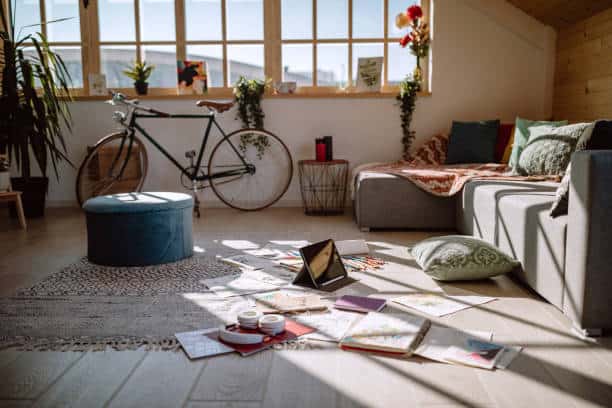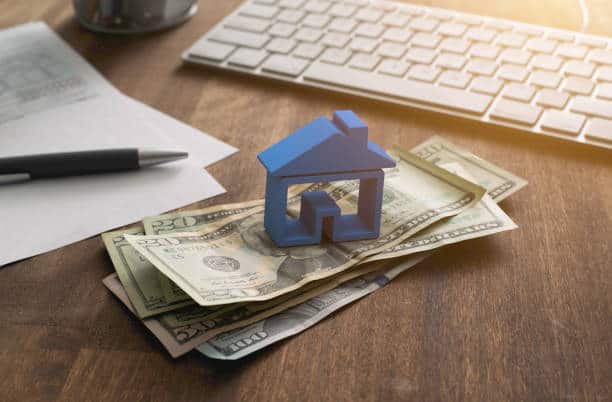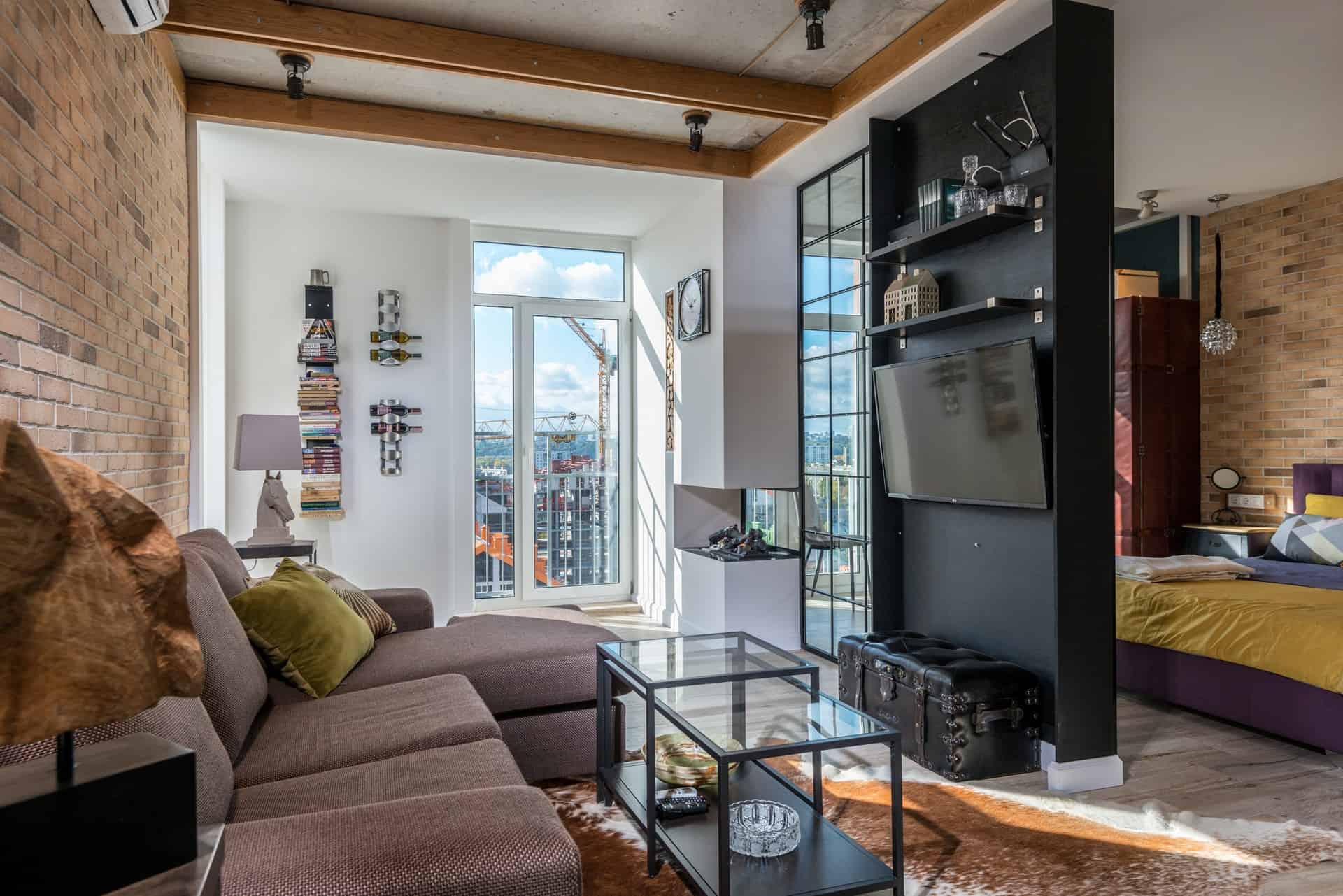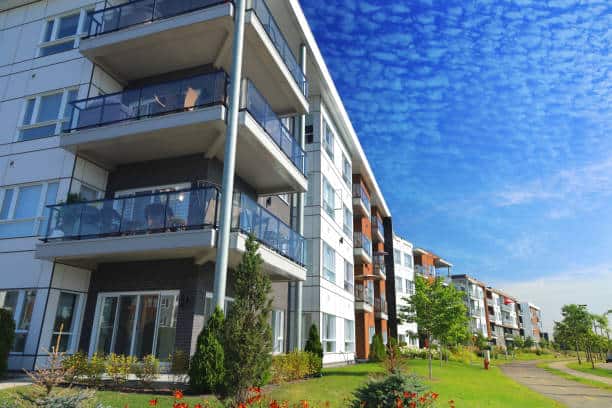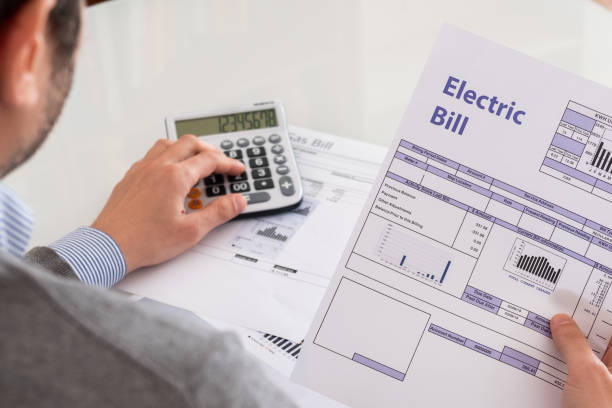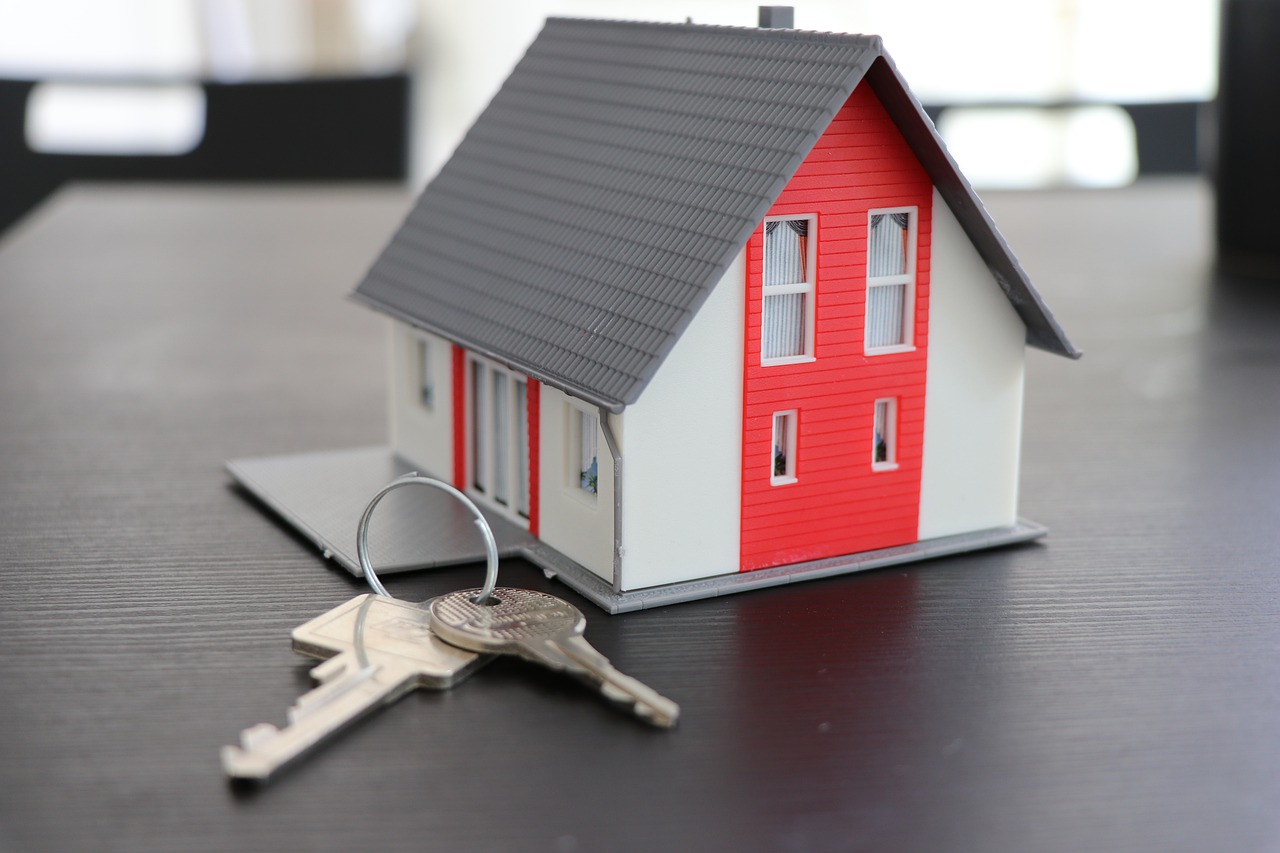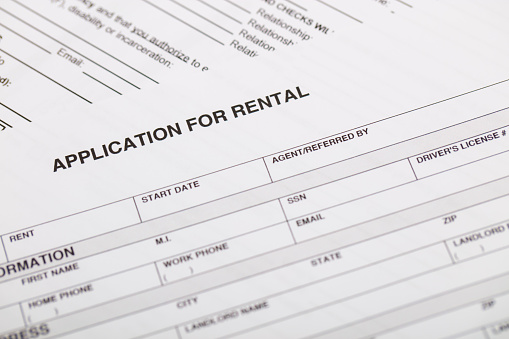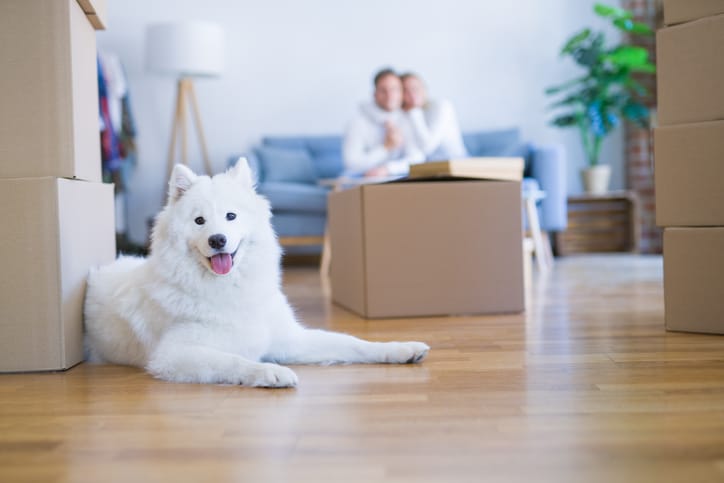April 18, 2022 at 10:50 am
·
Justin Becker ·
Comments Off on How to Declutter Your Apartment
Apartment living can be fun, but there are some marked differences when we compare it with living in a regular house. Most apartments have limited storage spaces, which could be challenging in many ways.
Some apartments might even be so strapped for space, which may leave you needing to decide between having a coffee table or side tables for your flat surfaces. This means that you have to make the most of your space and find ways to reduce clutter. Learn more on how to maximize apartment space here.
Is it Possible to Declutter an Apartment?
It can be quite difficult to organize and declutter your home, especially if you are learning how to downsize from a house to an apartment. However, too much clutter can feel overwhelming, especially if you like everything clean and passably presentable at all times.
Why Should You Declutter Your Apartment?
With apartments usually being smaller than most houses, they are more likely to have disorganized clutter very fast. This is why it is not just necessary to declutter your apartment, but organize it in a way that keeps your valuable space from disappearing again.
Here are just a few reasons why you should aim to declutter your apartment as soon as possible:
● It is easier to locate items: whether it is the medicine cabinet or the kitchen cabinets, finding what you need will be much faster when you declutter
● A higher level of comfort: with a nice open space, you can feel more at home, entertain company, and generally enjoy your apartment without feeling bothered/uncomfortable
● Save money: When you know where everything is and how much you have of it, buying multiples of certain items will be less likely; for instance, some people may end up buying a can opener several times when they can’t find one in their kitchen drawers
● Easier to keep the place clean and dust-free: Reducing the items in your home is just one way to reduce dust in your apartment, along with other issues like pest infestations and moldy growth
Where to Start with Decluttering an Apartment
If you are ready to start decluttering, you have already taken the first step. A small apartment needs some proper sorting and clearing on a regular basis. With that said, the key is to start organizing now rather than later.
The exact starting point of decluttering your apartment will vary according to your goals and needs. Some may want to start with a particular room and go from there. Others may want to clear away the immediate visual clutter first. Even decluttering your junk drawer is a small, but effective step that can jumpstart a whole process.
Whatever your end goal may be, there is no doubt that decluttering can help you enjoy that living space much better than before. Even if you have a small apartment, know that it is possible to have a neat, organized space that feels like home. Here are some organizational tips for a small apartment.
How to Declutter Your Apartment
Your decluttering goals should include not just doing away with extra stuff, but also staying organized in the long run. To this end, the following decluttering tips might come in handy:
1. Schedule Certain Days for Decluttering and Deep Cleaning
It is too easy to say that you will organize a certain area of the apartment tomorrow, not today. However, what first-time apartment renters may not realize is that this “tomorrow” may never come if they don’t buckle down and get the job done. Procrastinating can lead to even more clutter, so it is best to get right on the task right away.
Put the Decluttering on Your Calendar and Make Preparations in Advance
One way to ensure that you declutter on a regular basis is to put it on the calendar. This way, you have made a commitment and can work on following a declutter plan.
Formulate your own customized step-by-step guide, purchase cleaning supplies beforehand, and think about what you need to do. When the day for decluttering comes, you will know just what to do at the time – pack away seasonal items, sort old photos, or get rid of extra knick knacks, just to list a few examples.
It might be necessary to force yourself into this routine a few times. Once you get into the swing of it, however, you will see how consistent decluttering does not let things pile up and actually allow you to lead a better lifestyle.
2. Try to Get Multi-Functional Furniture
You just have one apartment to store all your belongings, but you also need furniture to make it livable. Huge storage bins might hold a lot of items, but they are not exactly aesthetically pleasing. A storage unit might be a smart storage option if you have a lot of stuff, however this is not a viable option if you want to keep your belongings close at hand.
Examples of Furniture that also Serves as Storage
See if you can get furniture that doubles as storage. Several multi-functional options are available, such as ottomans that you can open up or full-length mirrors that slide aside to reveal shelves.
There are also shoe racks that double as benches; you can keep these near the front door or the foyer if you have one. Many shoes now also provide beds with sliding drawers that can hold bulky items, such as extra blankets.
Make Sure Not to Overstuff Storage Spaces
Even though you might expand your apartment’s storage space, it is important to remember their correct usage. Just because there is some space inside your ottoman does not mean that you put more unwanted stuff in there.
3. Utilize Vertical Space with Pocket Organizers and Hooks
Some apartments may only consist of one room, so you have to get really creative here. Many people may overlook the fact that they have a lot of unused vertical space on their room doors, closet doors, and walls.
It is fairly easy to purchase inexpensive yet strong hooks. Pocket organizers can hang from clothes hangers; these are great for storing pairs of socks, underwear, etc. This way, you don’t have to deviate a whole separate drawer or shelf for these small items.
4. Focus on Moving Things Out
It is not always about how much space you free up, but also how you utilize it. Make a rule about new clothes and other items; if you buy one, you have to move one out. This way, you get rid of the old stuff while moving in the new and can feel good by donating to those in need.
Keep Only What “Sparks Joy”
A lot of things strewn about a room will probably not make you feel good on a daily basis. However, we can not deny that at least some of these things do make you happy and are important in your life. This is why it is a good idea to follow the Marie Kondo method of sorting.
According to Marie Kondo, the organizing and decluttering genius, we should ideally only keep those items that spark joy within us. The best way is to take everything out at once (starting with a single room) and go through everything one by one.
Basically, anything that does not make you happy or gives you joy in some way should be under consideration for throwing away or donating. This is apart from the necessities that we need on a regular basis.
5. Decluttering Your Office Space
More and more homes now have a space dedicated to work from home. This could be a whole room or just a corner of one room in your living space. Since this is probably your livelihood or an important source of extra income, decluttering this area should be a top priority.
With a clear space to work within, your productivity is likely to be higher than before. Here are just a few tips that can help you get that space clear and ready for some serious work:
- Go for digital options whenever possible: See if you feel comfortable with going paperless for bills; your bank and cable company can help with that by sending only electronic statements and bills. If you have documents taking up too much space, see if you can scan them and shred the hard copies.
- Shredding and recycling: Sit yourself down and sift through all the bills, receipts, and notes that take up all that space on your desk; safeguard the ones you need and shred or recycle anything that is not wanted or sensitive.
- Get some organization staples: A small organizer can do a lot to make things neat in your space for the office; a pen cup, magazine file, or even an accordion file can do the trick instead of a huge filing cabinet.
6. Calling in Professional Help
At times, you simply need to call in the experts. Even if the clutter is not that bad, some people just may not have the time, energy, health, or opportunity to deal with it on their own. Parents of small kids may also want fast, professional results, but not have the stamina to begin this task on their own.
Where to get Professional Help for Decluttering your Apartments
A qualified professional organizer should be available through online listings, recommendations from your friends, or just a quick Google search.
These experts can bring in an unbiased attitude, help in freshening up your place, and provide ideas to make your apartment look amazing. If you are having issues in how to arrange furniture in a small living room apartment, they can be of help in that area as well.
For more organizing tips, see the redfin article we were featured in 11 A+ College Apartment Organizing Tips | Redfin
The Takeaway
At the end of the day, staying consistent and patient is the way to go. Your apartment probably has a lot of stuff to clear out, so don’t get frustrated if it is not all done in a day. Focus on the goal of getting a bit more organized with each day, and don’t give up on making an effort. Do not put off the decluttering any longer; start on the nearest project and see how well you can finish it!
Read more
April 11, 2022 at 1:49 pm
·
Justin Becker ·
Comments Off on How Much Income is Required to Rent an Apartment?
The process of renting an apartment is not as easy as you think. Most landlords have tenants fulfill specific requirements to be allowed into an apartment; and one of those is the minimum income requirement to rent an apartment.
In most cases, landlords require that tenants have a combined monthly income of at least three times the monthly rent. This means that if the rent is, for example, $2,000 per month, the tenant should manage at least $6,000 per month in income.
Here, we explore the income requirements to rent an apartment.
How Much Income is Required to Rent an Apartment?
The exact gross income amount required to rent an apartment depends on the type of unit and the landlord. As stated before, most landlords require the amount to be at least three times the monthly rent. Let us focus on more details below:
Apartment Income Requirements
To be allowed into an apartment, you will have to meet their income requirements. Most landlords and property managers always require your monthly or annual gross income to meet a certain threshold. If you want to know more about income requirements, investigate this popular platform that provides detailed information on the topic.
If you have a roommate, the collective income of the apartment occupants should meet its strict income requirements. That is why most people prefer to have a roommate, especially when their own income is not high enough.
In New York, for instance, your annual income should be at least 40-50 times the monthly rent. This means that if you want an apartment that charges $2,000 in rent, you should have an annual salary of around $100,000. However, other states, such as Michigan, are somewhat relaxed on their rental requirements, sticking to the three times the monthly rent rule.
How Much Income Should You Allocate to Rent?
A general rule of thumb is that no more than 30% of your gross income should be directed to rent. This means that if you make $10,000 monthly, $3,000 should be channeled to pay for your rental unit. This rule is known as the Rent to Income Ratio Rule.
With that being said, some problems arise with the 30% rule. For instance, this does not account for debt or expenses. It may be difficult to swing $3,000 every month if you are also spending $2,000 on student loans.
This gives rise to a new rule: the 43% Rule, which is still related to the rent to income ratio. According to this new rule, your monthly loans (including loans for rent) and rental fees should not account for more than 43% of your income, which is how financial institutions also qualify people that are seeking mortgages.
This does not mean that some tenants don’t spend more money on monthly rent. In fact, some go as far as spending almost 50% of their net income on rent. We can attribute this to high demand, consumer culture, a product of low inventory, and inflated rental expenses in major cities.
It is up to you to determine whether it makes financial sense to neglect these rules or not. However, it will hurt you financially if you spend more on rent and have less to spend on housing costs and other things, such as medical expenses and child support.
Apart from the debt-to-income ratio, you should also consider what you spend on other things, such as clothing, entertainment, and food, i.e. living expenses.
Why do Landlords Require Income Verification?
Income verification is very important to every landlord. It helps them determine whether their prospective tenant will be able to afford to pay monthly rent before even being admitted into the rental property.
The landlord has bills that also need to be paid on time. For instance, if you don’t pay your rent on time, the owner may find it hard to pay the mortgage.
Additionally, eviction is not healthy for every involved party. Therefore, any sane landlord will find it difficult to gamble on whether someone will afford rent. For this reason, income verification is mandatory for most landlords.
Renting an Apartment without Proof of Income
Depending on the rental market and location, landlords might decide to accept tenants with no income. However, you will still be required to pay your monthly rent on time. Below are situations where you might rent an apartment without income verification:
Have References
To get an apartment without enough monthly income, the property manager will require additional security. This might be in the form of assurances from different people that you normally make your payments on time. Therefore, you should get personal and professional references that speak of your reliability and character.
Finding a Sublet
Most landlords become more flexible with apartment rules if you become a subletter. You will get a better deal, in most cases, especially if you decide to stay for a short time.
Property managers allow tenants to take in additional people as roommates in some cases. However, the tenant (leaseholder) is still responsible for paying the total rent, even if the roommate decides not to pay their share.
If you decide to sublet your unit, set rules from the beginning so that your roommate becomes responsible for paying their share. Also, confirm that your landlord allows subletting, because not all do.
Having a Guarantor
Most landlords allow a guarantor to co-sign a lease agreement. If you fail to pay your monthly rent, the guarantor is held responsible for the whole amount. However, not everyone is allowed to be your guarantor. In most cases, landlords will only allow a close relative with disposable income and a great credit score.
Pay Rent Upfront
A landlord will only be willing to completely ignore income verification if you agree to pay for rent upfront. You can either pay for an extensive security deposit (see Michigan Security Deposit Law) or pay rent for several months upfront. Many landlords will consider these offers.
Consider Private Landlords
If you get a landlord renting out a garage apartment or basement, they might be willing to ignore your income. However, to land such deals, you typically need to have a good relationship with the landlords. You can also rely on connections from friends and family members.
Proof of Income
As we have seen, most landlords want the tenant to prove that they are capable of paying rent. Tenants have several documents that they can produce to prove their income. Below are acceptable documents to prove your income:
Bank Statements
A bank statement shows your withdrawals, bank balance, and deposits. They give even unemployed or self-employed tenants a chance to lease or rent an apartment. A few months of the tenant’s bank statements can give the landlord a good idea of whether they have a steady income flow or not.
W-2 Form
This form represents the documents that the federal government employs to verify income. It also shows the previous year’s income. However, it may not provide a clear overview of the prospective tenant’s gross salary and current earnings.
Pension Statement
This document is available to retirees earning a monthly pension. Most landlords allow these statements as proof of income.
Pay Stubs
Pay stubs are what people get when their pay period ends. It is without question the most common proof of income document available. With that said, pay stubs will not give a clear overview for tenants who are paid hourly or by commission. The landlord usually checks the tenant’s most recent pay stub to verify whether they are still working or not and to confirm their monthly earnings.
Unemployment Document
Unemployed tenants can provide unemployment benefits documents to prove how much they have been collecting. This will indicate that they have a regular income. It is also a common document used to verify income, but not all landlords accept them.
Tax Returns
A prospective tenant can also provide their recent returns to show their income history and unearned income. However, most landlords do not prefer a tax form since it offers financial information from the previous calendar year, so it is impossible to get a clear picture of the tenant’s current earnings from it.
Income Letter from Employer
If you want to rent an apartment, you can ask your employer to write you a letter verifying your employment and income status. Alternatively, you can provide your offer letter, which in most cases details your position and salary expectations. Most employers deliver further details about their employees, which might be a reference. Rest assured that most landlords will verify letters from an employer since they sometimes can be forged.
Disability Insurance
Tenants that get worker’s compensation can provide an award letter from either the court or insurance company to prove their income. Such payments come with an end date. We recommend that you look for an alternative if the compensation comes to an end during the period of the lease you would be entering.
1099 Form
This is a miscellaneous income form, and is common for freelancers and self-employed rental applicants. Most prospective tenants offer the landlord multiple 1099 forms from a given year. However, the information on the 1099 form does not match the tenant’s potential future earnings.
What Should be Contained in the Proof of Income?
Regardless of the type of income documents you provide to your property manager or landlord, there is specific information that should not be missing. Below is critical information that both the landlord and tenant should be looking out for:
- The tenant’s full name
- The date it was produced
- Actual income amount
- Additional information, such as date of birth, bank account number, and social security income number
- If possible, include the employer’s name
Affording an Apartment with Low Income
Even though we have suggested that you only spend about 30% of your household income on rent, there are times when you have a low income to afford rent. This happens mostly to people who earn below the minimum wage.
What would you do in such cases? Follow the below guide for assistance:
Consider Getting Assistance
If you can not afford rent, you can consider taking as much help as possible. Here, we recommend that you apply for assistance or unemployment programs.
You can also talk to your property manager to see whether they understand the situation to let you occupy the unit. For instance, you can request an exemption from paying the security deposit when you enter the apartment and maybe pay it later. Landlords are human too and, though unlikely, might understand the situation.
Approaching a local religious or nonprofit organization can also help. However, don’t rely on such organizations since they sometimes experience limited resources due to emergencies.
This may also be the time to seek help from a friend or family member. Even with your low income, there is no guarantee that the landlord will let you lease or rent an apartment. We, therefore, recommend asking a family member or friend to pay the rent for you.
Even with limited income to lease or rent an apartment, you can still sublet your unit to afford rent. However, this is only possible if the apartment lease allows subletting.
Turn to Investments
Limited income should not prevent you from renting your preferred apartment. You can turn to investments such as stocks and sell them to get rent.
Even though it is not recommended to touch money meant for securing your future, housing is also an important aspect that can not be ignored.
Borrow Money
If you can’t afford rent, you can borrow money against your credit card’s limit. In such a case, you need a good credit report/credit history. You can also pay rent using your credit card. If you have a job, you can take a cash advance. However, it might be exposed to a high-interest rate.
Read more
April 4, 2022 at 1:08 pm
·
Justin Becker ·
Comments Off on How to Choose an Apartment to Rent
Apartment hunting is not an easy task, especially when you have a family or roommates to consider. It can be hard to find that perfect apartment that fulfills everyone’s needs and requirements.
There is a lot more to consider than just the monthly rent payment; the right apartment should be suitable for your living situation and goals for the future.
How Do You Start Apartment Hunting?
Some may start their search with the first apartment building or apartment complex that they see in a certain area. When touring apartments, however, one needs to question property managers, talk to a leasing agent, and be ready for a few compromises.
It is always best to do your homework before you start visiting apartments or contacting the property manager of any apartment complex. Take some time out to calculate just how much rent you can comfortably afford on a monthly basis. Factor in the utility costs, pet deposit (if any), security deposits (find out what is a security deposit for an apartment here), and other potential costs. This practice will prepare you for the financial aspect of selecting any potential apartment.
How to Choose an Apartment to Rent
Of course, the financial side of the matter is just one important aspect to consider. The rental budget and other considerations are worth looking at before you venture out to any apartment complexes. Let us have a look at most of these now:
1. A Heavy Emphasis on Location
Location is among the most essential factors when you are deciding on a new apartment. You may have a certain location in mind already, especially if you are trying to figure out how to find an apartment in a new city.
The location of your new apartment will determine many aspects of your life for at least the next year (assuming a standard 12-month lease). Just a few of these include:
Safety and Security in Daily Life
Everyone wants a certain level of stability and safety in their daily routine. Those who have kids might place an especially high importance on this factor. They would want their kids to go to school safely and play outside without worrying about anything untoward happening. The same goes for an individual living alone, retirees, or anyone who can be deemed vulnerable.
Proximity to a Decent Education
Whether a family member is going to school or college, having a good educational institution nearby is always a boon. Kids and college students alike will find it convenient to have their school close by, as it will cut down on commute time and reduce the hassle of their daily routine. It may be possible to include this requirement when you browse these websites to search apartments for rent.
Transportation Facilities
Easy access to public transportation will shorten your work commute on a daily basis. It will also make it easier to visit the shops, nearby cities, or anywhere else you want to reach.
Lower Rental Rates
The nearer you get to the major cities, the more expensive housing gets, but again, having a good location helps out. Now that remote working is so common, it might be convenient for you to check out the outer suburban areas, or even rural locations. Such areas will probably get you lower monthly rent, more square footage, and other perks, such as clean, natural surroundings.
In some locations, it may even be possible to find an apartment without a broker.
2. A Suitable Apartment Complex or Building
Once you have narrowed down the most likely location for your needs, it is time to check out the most suitable apartment complexes around the area. There will be several kinds of buildings with apartments to rent out there, so check them out to see if they fit your needs. There might be small home-like boutique blocks, huge towers with all kinds of facilities, or a whole complex with a tightly knit community. The by-laws and rules of each option may be different, so make sure to ask the property manager about the following points:
The Pet Policy
A pet can be as important as human family members; if you have one or want one, ensure that the apartment complex will allow it. The landlord’s permission is the first step, but you also need to ask about the fees for keeping a pet. In addition to the pet deposit, there might be rules and charges for certain breeds, potential damage, and how the pet affects the other residents, so be sure to review the apartment pet policy in great detail.
Rules and Regulations about Different Areas
Some apartment buildings might have several rules about various activities. Make sure that you read up on all the by-laws beforehand and see if you can follow them properly. Just a few limitations might include:
- Not hanging the washed clothes on your balcony
- Certain restricted timings for the gyms, laundry facilities, barbeque areas, etc.
- Rules about drilling, hammering, renovations, etc.
- Rules about noise levels, disruption, etc.
The Overall Tone and Atmosphere
How does a certain apartment building feel to you? Does the sight of children running about warm your heart and tell you that it is a family-friendly place? Or does all that noise mean a constant disturbance when you are trying to study, work from home, or just have some well-deserved rest? Learn how to deal with noisy apartment neighbors here.
At the end of the day, families will probably like the idea of having other families in their close proximity. People who are into gardening or saving the planet will appreciate a composting system, garden beds (on the roof if not the ground), or a gardening club.
Even if you are fairly neutral about the kind of atmosphere in a building, you may get a sense that it is poorly managed. The wall paint might be uneven and certain neglected areas could be eyesores, but all-in-all, it is up to your own feeling about the place.
3. Choosing the Right Apartment
Do not just leave your search when you have found the right building; always insist upon seeing the unit you will be living in. If all seems well on that count, you may then apply for an apartment there. It might take some time for the management to approve you for an apartment (see how long does it take an apartment to approve you to learn more), so make sure you have some backup available.
As for the apartment itself, you might want to double-check on the following factors:
Enough Space and Privacy
There should be enough room for everyone in the household to have some space for themselves. If they work from home, this factor is even more important. Find out how to arrange furniture in a small living room apartment to help you with this.
Available Facilities for Daily Living
Once you have the apartment, will you be getting access to the laundry and other facilities? You may also want to check if the internet connection and signals are strong enough for working at home, streaming your entertainment, and other uses.
Other essential facilities may vary from person to person. Some may not be able to go without air conditioning, a dishwasher, and other appliances. Others may simply require no more than a large open space to move around in; perhaps a balcony might be a must for them.
Maintenance and Overall Condition of the Apartment
Make sure to inspect the wiring in the apartment; faulty wiring can be very dangerous. Other noticeable marks of what is normal wear and tear in an apartment, such as threadbare carpets or flaking wall paint, might turn you off. Signs like these usually show us whether a landlord or management company is taking care of the property or not.
If you are unable to arrange in-person time to visit apartments, a virtual apartment tour and recent photos could be the next best options. Also, the online reviews of any apartment complex can be invaluable when you want genuine feedback about the place.
4. Stick to Your Budget
If you are still wondering how to shop for apartments, remember that you will only be wasting time by looking at options out of your budget. Sticking to your budget will help to narrow down that apartment list and save everyone’s time.
A general rule of thumb is to have the cost of your lease be about a third of your gross income. At the same time, you might want to factor in traveling costs, maintenance fees, and other attached expenses.
5. Check Whatever You Can
The utilities cost will certainly be a considerable factor, but you should also make sure that you are getting decent service as well. To this end, you may want to ask around about the stability of the electricity supply and preferably check the water pressure yourself. Talking to potential neighbors can help you decide whether daily utilities are going to be a nuisance or not. Not having decent water pressure can be a headache, therefore you will have to make the decision about living with it before signing anything. Learn more about how to keep utility bills low in an apartment here.
Other essential things to check are the locks on the doors and windows, smoke alarms, burglar alarms, the thickness of the walls, etc. Make a list of whatever is important to you and see whether the apartment and building fulfill those requirements.
Whether you are on the lookout for your fi
The Takeaway
rst apartment or have to relocate to a new location for work, keep in mind that renting any kind of property comes with its ups and downs. Even if you think you know how to find the perfect apartment within your rental budget, take a step back and go through the tips above. Getting a decent apartment with all the perks you want may not be possible, but you can pick out at least three non-negotiable priorities and take it from there.
These tips will also help many renters to avoid decisions that they might regret later on. Once you have your goals and priorities straight, that apartment list should have the most suitable options for you to be able to enjoy a happy renting life.
Read more
March 28, 2022 at 12:43 pm
·
Justin Becker ·
Comments Off on What Bills to Expect When Renting an Apartment?
Apartment living is becoming more and more common, especially for students and young people moving out of their parent’s house for their first apartment. They are perfect for you if you want to rent your first place.
With that said, if you are looking to rent your first apartment, do not forget about what bills come with apartment living. Apart from the monthly rent, which is the main bill, you will also be required to pay for other bills, such as utility bills, grocery bills, renter’s insurance, among others. When it comes to these, in order to lead a stress-free apartment life, we recommend analyzing your personal finances and sticking to your monthly budget.
Here, we will take you through all the bills you will have to pay on top of your monthly rent.
What Bills to Expect When Renting an Apartment
You will have to make several monthly payments while living in an apartment building/community. Let us consider them below:
Base Rent
This is the main bill you will be required to pay for living in an apartment. In most cases, you will be required to pay it on a monthly basis. We recommend that you spend a maximum of 30% of your monthly income on your apartment rent. However, the actual percentage might vary depending on the location or type of unit.
Within an annual lease agreement, how much rent you pay remains constant month over month. It is not until the lease ends is when your landlord can increase your rent. With that said, with month-to-month leases, the landlord can increase your rent at any time simply by submitting a 30-day written notice.. Therefore, ensure you know how to read an apartment lease well before renting an apartment.
If you want to save on your monthly rent, follow the tips below:
Negotiate for a Lower Rent
Every landlord wants to keep their apartment occupied with good tenants. Remember, it costs them a lot to evict tenants and find new ones, so this gives you some leverage.
You should research the available apartments in your area and list several options. If the landlord fails to offer you a better deal during lease renewal, let them know you have options. If you have proven to be a good tenant, there is a chance they will work with you before potentially losing you. With this being said, you should give reasonable demands while negotiating for a rent decrease.
Rent with a Roommate
This is the most obvious and common option, and it saves by far the most money. For instance, the average one month’s rent in the U.S. for a one bedroom apartment is about $1,663. With a roommate, you will only be required to pay half of that. Such an amount translates into a large savings every year. In fact, you will also save money on other living expenses, such as groceries, toiletries, kitchen supplies, utilities, and monthly food costs.
Search for an Apartment During Winter
The number of tenants looking for apartments for rent during winter is lower than those in the summer. This can be attributed to winter being cold and most people not being comfortable leaving their homes. Also, school is still in session during this time. This is when apartment vacancies can go on for a long time, causing landlords to lose money.
You are likely to find lower rates if you rent an apartment during winter. If you wait, it is almost guaranteed that you will pay more during summer. Rent is higher in the summer thanks to grade schools being out, college graduates flooding the market, and the conducive weather.
Ideally, you should rent an apartment in the winter and sign a lease agreement that extends to the end of summer. Learn what is the best month to look for an apartment here.
Pay Upfront Costs for a Discount
The only sure way of getting a discount when renting an apartment is to pay at least a few months upfront or the entire lease. Even if you can’t pay more than the minimum required upfront, you can still talk to your landlord and ask for possible monthly discounts. It never hurts to ask.
Consider Private Rentals
Private apartments are properties owned by a family or individual rather than corporations. For your information, most large apartment complexes are owned by corporations.
A private apartment could be an apartment complex, guest house, or even a single-family house. Private landlords happen to be laxer as far as rent, deposits, and application fees are concerned. They are also more likely to agree to a rental negotiation and work with you when it comes to evictions
Work for the Landlord
If you are an expert plumber or electrician, for example, you can provide repairs for the property manager for a rent discount. Every time something requires maintenance or repair, the landlord pays a professional to fix it. Therefore, they might be willing to work with you, especially if it saves them money. Try to acquire some skills that you can employ to get rent discounts.
Pet and Security Deposit
After the landlord has approved your apartment, you will have to pay a security deposit. In most cases, the security deposit equals the first month’s rent, but legally can be up to a month and a half’s worth. The deposit is used as security for the landlord to be reimbursed if there is damage to the apartment. If you break the rental agreement earlier or suffer from eviction, you will not get the deposit back. Learn more about what is a security deposit for an apartment here.
The deposit is always due when you sign the lease with the property manager, but are security deposits for apartments refundable? If you pay rent on time and take good care of the apartment, expect to get the deposit back at the end of your lease. In fact, you should think of it as some form of long-term savings. Upon moving out of an apartment, you should get the deposit back within 30 days.
Additionally, most landlords require that you pay a non-refundable pet deposit/fee if you own a pet. The exact amount to be paid varies depending on the landlord, however you should expect it to be between $200-$500. Be sure to review the apartment pet policy for all details.
Apartment Moving Costs
Every time you move into a new apartment, expect to incur costs, especially if using a moving company. Even if you decide to use your truck, you will still spend money to pay for gas.
Realistically, you should hire a professional moving company or at least rent a moving truck, if possible. Research the available movers and ensure that you only deal with reputable ones. Also, be keen to determine whether the travel time is incorporated into the cost estimate.
For your own good, factor in other costs associated with the move date, too. A good example is time taken off work. Remember, not earning money is always the same as spending it.
Rental Application Fee
Most property management companies and landlords require that everyone applying to rent an apartment pay an application fee. The application fee could be as low as $20 or as high as $75, but these are just averages. In most cases, this amount is non-refundable.
If you apply for an apartment with a roommate, you might be forced to pay separate application fees. It is expected that the landlord will use the application fee to find out critical information about you and your roommates, like running background checks. The background check focuses on the eviction history, criminal history, and credit history, for the most part. The landlord will also determine your income and employment status from check stubs, bank statements, and/or tax returns, which are also typically required. This can help them establish how affordable it is for you to pay the rent.
Even when you have negative aspects on the background check, such as bad credit, you can still qualify for an apartment. Find out about apartments that accept bad credit here.
Renter’s Insurance
Most leases require that a potential tenant have renter’s insurance, but what exactly is it, and what does it do?
The renter’s insurance does not protect the property, but rather your personal stuff in the property. Renter’s insurance also offers liability coverage. If a person gets injured in your apartment and sues you, you will be covered.
An insurance policy could cost up to $25 monthly, on average. However if you bundle the policy with your auto insurance company, you will likely get a discount. Several factors influence the cost of your policy. For instance, having an aggressive dog exposes visitors to the danger of being bitten, thus, translating into a higher rate. Let us consider the factors influencing the policy prices below:
Apartment Location
This is one factor you have little to no control over. The insurance prices always fluctuate from one apartment community to another throughout the country. If you reside in a location prone to earthquakes and flooding, the insurance will likely cost more. This is because a standard policy does not typically cover such losses.
Amount of Coverage
The amount of coverage you select has a major impact on the policy price. We recommend that you insure everything in the apartment since a fire breakdown can damage everything. For your information, a general renter’s insurance policy does not cover valuable items, such as antiques or expensive jewelry.
Deductible
This involves the amount you pay for any loss before your insurance coverage begins. The more you are willing to pay, the less the premium costs. Although the move keeps the cost down, you should ensure that you can afford the deductible.
Discounts
You can get discounts for things, such as fire extinguishers, sprinkler systems, fire and smoke detectors, deadbolts, and burglar alarms. When speaking to the insurance agent, ask for the available discounts and the ones you qualify for.
Actual Cash Value vs. Replacement Cost
When your insurance policy says it will pay for actual cash value, it implies paying for the item value at the time of loss. For instance, you might have bought a fridge for $300 about five years ago, but its current value may be $80. Your insurance policy only guarantees you the $80 in this scenario.
On the contrary, replacement cost coverage lets you replace damaged or lost possessions with a new item at the current value to replace it. Therefore, you should expect the replacement cost coverage to cost more than the actual cash value coverage. Regardless of the high cost, we still recommend the replacement cost options.
Utilities and Streaming Services (Internet Bill)
Depending on the apartment you select, you might be responsible for paying streaming services and utility bills. While many apartment complexes cover some of such expenses, you should seek clarification from the landlord or utility companies on what is not included to budget your monthly expenses well. Find various apartments with utilities included in Michigan here.
If the apartment management covers nothing, financial responsibilities, such as a water bill, cable, internet, gas, pick-up, parking space, and electricity bills will be on you. Potential tenants with poor payment history may be required to pay for an additional utility deposit. There are services, such as streaming services, that require you to pay a start of the service fee. This fee is meant to allow the service to be set up for the first time.
If you decide to share the apartment with a roommate, agree on how to share the utility expenses. You can also follow the tips below on how to keep utility bills low in an apartment:
Unplug All Appliances When Not in Use
Many tenants pay a lot of money for electricity costs. You can save on your electric bill by unplugging appliances from the sockets when not in use. It has been proven that some appliances use power when plugged in, even when not in use.
Use LED Bulbs or Compact Fluorescents
Upgrading your bulbs to more energy-efficient options will help you to save energy. For your information, LED bulbs consume 75% less energy than normal bulbs. This translates into saving about $1.25 monthly per bulb. This will help you save a lot, especially if you have many bulbs in your home.
Enable Air Flow
We recommend that you augment your A/C with box and ceiling fans. Ensure that the ceiling fans operate counterclockwise, which will push cool air towards the floor, thus, improving comfort levels. Additionally, ensure that there is no furniture blocking air vents, and your filters should also be clean. Enabling airflow lets you reduce the effort needed for the A/C to cool your home, thus limiting energy consumption.
Turn Down the Heater
Ensure you turn down the water heater to about 120 degrees Fahrenheit. For every 10 degrees decreased in your current heater temperature, you save between 3-5% on your heating costs.
Adjust the Thermostat
There is no point in leaving the thermostat on all the time, even when you are away. Every time you leave the apartment, ensure you turn the thermostat down. This will save you a lot in energy costs.
Upgrade and Service the HVAC Equipment
Servicing your HVAC equipment is guaranteed to keep the utility costs low. Apart from helping to limit unexpected repairs, extending the equipment lifespan, and safeguarding the indoor air quality, it also improves efficiency. Since old HVAC equipment will not operate as effectively as new ones, we recommend upgrading them when they become too old.
Read more
March 21, 2022 at 1:59 pm
·
Justin Becker ·
Comments Off on How Long Does it Take an Apartment to Approve You?
So, you have finally completed the search for an apartment and found just the right one for your needs. That is a great achievement in itself! Now is the time to start the rental application process.
A rental property does take some paperwork, and it will probably be some time before you move in and start to pay rent.
Do You Feel Like Something is Missing?
Once you complete and submit that rental application, waiting to get approved for an apartment can be quite challenging. At this point, you may wonder whether the rental application should have been better. Perhaps, you should have gotten a recommendation from your previous landlord or dropped by the leasing office to get some valuable insights.
How Long Does it Take an Apartment to Approve You?
If you are renting an apartment for the first time, you might be pleased to learn that the apartment application approval process does not usually take too long. Your rental application will probably be accepted or declined within three working days after its submission and the payment of the processing fee.
Is it Possible to Shorten this Length of Time?
On the other hand, you may not want to wait even that long to get approved for an apartment. You may have other apartments in mind and want to make sure of this one before parting with a security deposit. Having this apartment may also mean finally starting on a new career, or your previous landlord may be on your case to move out soon and make room for new tenants.
There might be other prospective tenants in the same boat. They have filled out the rental applications, gone through the credit checks, and paid the application fee, too. However, keep in mind that the property management company or property manager will have to go through several bank statements, pay stubs, and other aspects of the rental application process for each prospect.
Fortunately, there might be a few ways to speed up the approval process and increase the chances of your success. If you want your rental application to get approved for an apartment quicker than usual, here are some valuable tips to follow:
1. A Complete Rental Application Increases the Chances of a Successful Approval Process
A rental application or apartment application is something to take very seriously. Make sure you read every printed word on it at least twice. Also, when filling in the apartment application, make sure to be as thorough as possible. The potential landlord may ask a lot of questions, so answer them all to the best of your ability. Even if your past landlords were easy-going, you have to make a good impression in the application process.
How to Prepare Ahead
When you start the application process, make sure to plan properly before finalizing the apartment rental application. If the rental application is complete, it might even get an approval from the property manager or potential landlord on the same day of submission.
Preparing for your rental application process might require some legwork and effort, but it makes things easier for the future. Who knows, you might be saying goodbye to past landlords and paying the monthly rent in your dream apartment before too long!
Of course, if the rental application does not have all the necessary documents or information, get ready to wait. A few days or longer are what it will typically take to get approved or rejected by the management company.
2. Make Sure All Documents are Ready, Especially Income Verification
Any regular rental application process will require certain documents, along with the filled rental application as well. These may include pay stubs, bank statements, credit report, and proof of your monthly income. A letter of employment and references from prior landlords may also be of use.
When the property manager is deciding whether to approve the rental application or not, just a few extra pieces of information may tip the scales in your favor. Some rental applications may require these documents to determine whether you can afford the monthly rent or not.
The Importance of Providing Monthly Income Verification
When submitting your rental application, it is a good idea to include as many additional income verification materials as possible. If a potential tenant has this proof of income ready beforehand, and it meets the requirements, they will probably have a successful rental application very soon.
The management company in charge of the rental property could also have certain income requirements. These may include having your gross monthly income be three times the monthly rent, or go all the way up to requiring 50 times the monthly rent in your proof of income. This may seem astronomical, but this is what it would take to get approved for an apartment in places like New York City.
Ask About Other Documents that Might Work in Your Favor
To increase the chances of a successful rental application, you may want to provide other types of information. Things like your driver’s license number, proof of current and previous employment, references from previous landlords, and proof of tax returns may accelerate the application process.
If you have done all of this and are expecting an approved rental application soon, check out these ideas for how to arrange furniture in a small living room apartment.
3. Expect at least One Credit and Background Check
After submitting the rental application, the process of renting an apartment officially starts. What is the landlord or management company doing until they give an answer?
First of all, they will check out your credit report, rental history report, and perform a credit check. If you don’t have bad credit and there is no history of you being in landlord-tenant court, the application process will continue. You can even check your public records using a free people finder tool so that you know what they will see during the background check.
The next step is to review the whole rental application. Background and credit checks are a must, as the rental history will show whether a potential tenant is more of a risk than others. After the background check, they will verify your employment and review the proof of income. This will hopefully get your rental application the edge it needs for approval.
4. Make Sure You Are Accessible and Reachable at All Times
Even if you have submitted a fully complete rental application to the best of your abilities, stay alert. The landlord may have a few questions that can seal the deal. So, make sure your phone is switched on 24/7. You should also be checking your email regularly, just in case.
For instance, your potential new landlord may need more paperwork from you or require an explanation of something on your background check, credit report, etc. If you don’t pick up their call or answer their email, the background check might not be enough. The same goes for any voicemails, text messages, or even messages on social media accounts, if that is their preferred way of communication.
When you promptly reply to messages or answer calls immediately, it gives the landlord an impression of responsibility. You come across as being in control of your life, and, thereby, your finances. All in all, this will only enhance your attraction as a potential tenant.
5. Your Landlord Might Influence How Long it Takes to Process a Rental Application
When you want to know how to shop for apartments, you should keep in mind that the landlord is an influential factor. Certain landlords might be able to review all paperwork and even pull your credit score quite rapidly. With individuals or companies like these, you are in luck. If the rental application is approved, you can quickly move into your new home. Even if there is a rejection, it is best that you get to know about it as soon as possible. This way, you can start looking at other places more quickly and minimize any losses.
On the other hand, there are people or companies that may want to go a bit more slowly. They might be very thorough in their approach, following up on references from past landlords and employers. If the actual owner of the apartment hires a third party to process rental applications, there might be an even longer waiting period.
Who are You Dealing with?
If you submit your rental application directly to a landlord, the chances of approval are higher. The landlord likely wants the property to get tenants in as soon as possible in order to earn from their investment. However, if you are working with a property management company or real estate agent, these will slow everything down significantly. After all, they have other properties to oversee as well and will also need to check in with the landlord before any major decisions.
What Kind of Apartment are You Looking at?
In certain cases, getting approval from an apartment can take up to weeks, or even months. Rent-stabilized or low-income apartments are usually among the most high-desired ones. As a result, any application process needs to scrutinize potential tenants very thoroughly.
The Takeaway
Since the rental application processes are not completely automated, it does take some time before you get an approval. Certain omissions may drag the process along further than necessary, while some precautions could smoothen out the wrinkles.
In either case, make sure you have a roof over your head while waiting for the approval of your rental application. Start preparing for it now so that you can be ahead of other contenders!
Read more
February 28, 2022 at 12:30 pm
·
Justin Becker ·
Comments Off on How to Adjust a Dog to Apartment Living
Moving and adjusting to apartment life can be sometimes stressful for all parties involved. With that said, many people ignore the stress that moving into a new rental unit puts on pets, especially dogs.
When you downsize from a house to an apartment, it can be sometimes shocking to your pet due to the commotion and noise created. Luckily, there are things you can implement before, during, and after moving to help your pooch adjust to apartment living.
Here, we focus on the critical steps you can take to help your pet adjust easily to living in your apartment.
How to Adjust a Dog to Apartment Living
How do you adjust your dog to apartment living? Let’s consider some of the following helpful tips:
Selecting the Perfect Apartment
The best thing you can ever do is select a pet-friendly building, with a favorable apartment pet policy, for your dog. Still, you can have a dog in an apartment that doesn’t support pets, but they must have an emotional service animal document from a mental health provider.
A pet-friendly apartment typically offers additional amenities, like dog parks where you can take your dog for a walk. If you can, go for a rental unit that is on the ground floor for your pooch. Living on the ground floor makes things, like potty breaks, much easier. Also, residing on the ground floor is ideal if you don’t want to annoy your neighbors with noise.
We also recommend going for a carpeted unit since it mutes the sounds from your dog while it’s running and barking. You can also use area rugs if your rental unit has bare floors. Having rugs will also prevent your dogs from slipping, especially when playing.
Before Moving
Even before moving from a house to an apartment, there are things you can do to help your dog adjust quickly to the new environment. This might involve familiarizing yourself with apartment-like surroundings.
Start Playing with Your Dog Indoors
After moving into an apartment, you won’t get the same space to play with your dog like you would in a fenced yard. It is, therefore, critical that you allow your pet to get used to the indoor playtime even before you move, if possible.
This way, after moving into a rental unit, your dog will adjust more quickly to indoor playtime. You can start by playing games like hide and seek with a ball, bone, or dog toy. You can also play rollover sit tricks. Developing some obstacles for your pooch to navigate can also be helpful.
Visit Your New Apartment
We recommend visiting your future rental unit with your pet more often, especially if it’s not far. This allows your pooch to get used to the smells, sights, and sounds your new apartment presents. Once a dog is familiar with a place, it won’t appear terrified as it would otherwise.
Reduce Outdoor Yard Time
Many apartments don’t offer a lot of outdoor space. Reducing the number of times you take your dog out in the yard allows it to get used to having no yard space. With that said, you need to make the dog’s adjustment gradual to make the transition easier.
We also recommend shortening the time your pet spends outside. For instance, if you used to let your pet play for three hours in the yard, you can reduce the time to about two hours. After about a week, you can then reduce the time to one hour, and so on. Gradual short periods will make a world of difference.
Introducing Training Pads
Before moving to a new rental unit, you need to introduce pads to your dog. These are especially perfect for small dogs.
If you are able to, we recommend laying pads throughout your house in similar positions that you plan to place them within your new rental unit. If you have puppies, we recommend puppy pads, along with baby gates too.
Walk Your Pooch
All dogs, especially younger ones, require exercise. However, the chance to be outside will most likely be reduced in a rental unit.
Having a walk in the morning and evening will give your pet the exercise required. It will also allow your dog to adjust to the new routine once in the rental unit.
Purchase Additional Supplies
Before you move to a rental unit, we recommend that you purchase additional supplies, such as toys and a leash for walks. This way, your pooch will get used to such items even before you move to a rental unit. This will also reduce the pressure of buying items while moving. Remember, the cost of moving is very high, and you wouldn’t want to have to pay for all of these expenses at once.
After Moving
After moving into your new rental unit, there are things you must do to make your dog adjust well.
Give Your Dog Company
Always provide company to your dog in your new apartment until it adjusts. Even if you’re not around, leave your dog with a roommate, family member, partner, or pet sitter for the first few weeks after your move. This way, your pooch won’t feel very anxious.
Once your dog shows signs of being comfortable in your new apartment, you can try leaving it alone for some time. To know when your dog is comfortable in the new environment, it will usually hold its tail and ears in a relaxed and natural position, especially when you prepare to leave.
Create a Routine
You should create and establish a routine in the rental apartment immediately. A dog becomes comfortable more quickly in a new space when it understands what to expect.
Have a schedule for everything, including walking and feeding your pet. Ensure you do everything, including playtime, almost at the same time daily, and be disciplined with it.
Develop a Comfortable Environment
Develop a very comfortable environment with things that your pooch can relate to. Having a space where your dog can take a break or get cozy when required helps it feel very comfortable and safe in the new rental unit.
We recommend having familiar blankets and favorite dog toys around. These should be items that the dog was familiar with before moving into the new rental unit. Use the dog’s crate or bed to develop a space purely for the dog.
Expect Behavioral Breakdown
Even when you prepare your dog for a smooth adjustment and transition from a home to a new apartment, they are likely to still feel anxious. This might translate into unwanted behaviors, such as destroying items, sulking under the bed, excessive barking, and forgetting their potty training.
Regressive behaviors are common since dogs naturally assert themselves in new surroundings. They develop separation anxiety in fear of change or being left alone. Such negative behaviors become magnified in a rental unit since many apartment dwellers are affected. In most rental apartments, pet-related destruction is considered an offense, so be sure to learn how to pet-proof an apartment.
Keeping Your Dog Happy
Once you have settled in the rental unit, you must keep your dog happy as much as possible. To achieve this, below are some tips to consider:
Crate Training
Any time you leave your rental unit without your pet, it would help to have your dog in a crate. The crate will help your dog feel more comfortable and less nervous when you leave it alone. You can also take an online crate training course to make the process smoother.
Leave Someone In-Charge
When you’re not at home, especially for extended periods of time, hire someone to take care of your dog. You can consider approaching neighboring pet owners, friends, family members, or even pet experts. A pet expert or pet sitter is always the best option since they understand pets more than anyone else, but know that hiring one will cost you money.
Daily Walks
No matter the dog’s size, you should allow it to have quality time and exercise daily. Since a rental unit typically offers a small space to play and run, we recommend scheduling daily walks as part of your routine.
Ensure you take your dog for a walk at least once, no matter if it’s in the morning, evening, or afternoon, to keep it healthy and active. For each session, walk the dog for about 30 minutes.
Regular Potty Breaks
If you don’t have training pads, we recommend taking your dog out for regular potty breaks. Most dogs require to visit the bathroom at least three times per day. Even if you don’t plan on using indoor pads, take the dog to the bathroom at least once in the morning, noon, and evening.
Use a Dog Park
Apart from daily walks, extensive exercises once every week can also be helpful to your dog. You just need to identify the best and safest parks that are closest to your rental unit. With that said, you will want a park that is perfectly designed for dogs and other pets. Taking your dog out in a park regularly will make it more comfortable in your new rental unit at a much quicker pace.
Daily Indoor Playtime
You need to continue with the indoor playtime program that you introduced your dog to before the move. Indoor playtime will help your dog be comfortable in the new rental unit, and it enables you to bond with your dog while giving it additional exercise.
Exposing your dog and allowing it to play with other dogs can also make adjusting easier. Identify a neighbor with a dog in the rental complex and make arrangements for your pets to play together. If you have a small dog, it will help to identify a small pet to play with. A bigger dog can easily overwhelm it, making your dog uncomfortable. The best place to meet other dog owners would be at the park.
Training Your Dog
Most pets, including dogs, are emotionally attached to you and always try to follow your lead. Therefore, you have all the power to make them adjust to apartment living. Due to this, you should train your dog on how to live and adjust to the new environment. Apart from creating a new routine, as we have illustrated above, there are other things you need to do:
Most apartments come with elevators and stairs: This may be something your dog has not experienced before. Therefore, your dog might find it tough to go up and down the stairs at your new rental community.
If they are not used to seeing strangers in a public indoor environment, you might find them doing abnormal things, like barking while getting into elevators. It’s your responsibility to keep your pet close and have them behave as if it’s just a normal ride and not a big deal at all. This is likely to make the dog more comfortable and prevent them from barking.
The bottom line is, the calmer you are, the calmer they will be.
You‘re likely living with neighbors in close proximity: In a rental unit setting, you will likely be closer to neighbors than in a house. This may cause your dog to feel scared when it meets such new neighbors.
To avoid this, you should introduce your pet to as many neighbors as possible every time you get a chance. Pets, especially dogs, are good at recognizing people’s smell and appearance.
Apartment noises can be too much: You are likely to hear much more noise in your new rental unit compared to a house. These noises may include loud music, the elevator coming down, your neighbor’s dogs barking, people opening and closing their doors, and vehicles.
Most pets, especially dogs, find such noises annoying and uncomfortable. With that said, you can train your pet not to react to such noises and distractions. We recommend distracting your dog with extra treats or by playing with them until it gets used to such noises.
Read more

